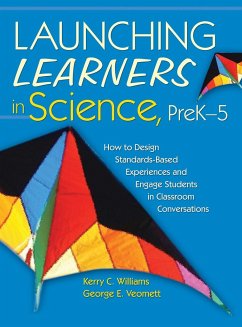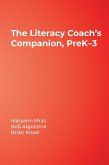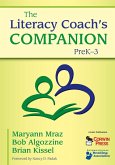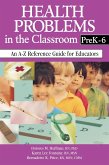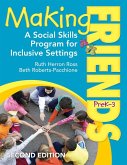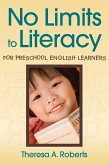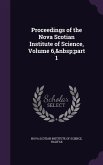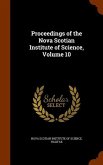Kerry C. Williams, George E. Veomett
Launching Learners in Science, PreK-5
How to Design Standards-Based Experiences and Engage Students in Classroom Conversations
Kerry C. Williams, George E. Veomett
Launching Learners in Science, PreK-5
How to Design Standards-Based Experiences and Engage Students in Classroom Conversations
- Gebundenes Buch
- Merkliste
- Auf die Merkliste
- Bewerten Bewerten
- Teilen
- Produkt teilen
- Produkterinnerung
- Produkterinnerung
This valuable handbook is packed with examples, questions, stories, and thought-provoking ideas linked to NSES to help teachers give students a strong start in science achievement.
Andere Kunden interessierten sich auch für
![The Literacy Coach's Companion, PreK-3 The Literacy Coach's Companion, PreK-3]() Maryann MrazThe Literacy Coach's Companion, PreK-378,99 €
Maryann MrazThe Literacy Coach's Companion, PreK-378,99 €![The Literacy Coach's Companion, PreK-3 The Literacy Coach's Companion, PreK-3]() Maryann MrazThe Literacy Coach's Companion, PreK-333,99 €
Maryann MrazThe Literacy Coach's Companion, PreK-333,99 €![Health Problems in the Classroom PreK-6 Health Problems in the Classroom PreK-6]() Dolores M. HuffmanHealth Problems in the Classroom PreK-687,99 €
Dolores M. HuffmanHealth Problems in the Classroom PreK-687,99 €![Making Friends, PreK-3 Making Friends, PreK-3]() Ruth Herron RossMaking Friends, PreK-340,99 €
Ruth Herron RossMaking Friends, PreK-340,99 €![No Limits to Literacy for Preschool English Learners No Limits to Literacy for Preschool English Learners]() Theresa A. RobertsNo Limits to Literacy for Preschool English Learners84,99 €
Theresa A. RobertsNo Limits to Literacy for Preschool English Learners84,99 €![Proceedings of the Nova Scotian Institute of Science, Volume 6, part 1 Proceedings of the Nova Scotian Institute of Science, Volume 6, part 1]() Proceedings of the Nova Scotian Institute of Science, Volume 6, part 133,99 €
Proceedings of the Nova Scotian Institute of Science, Volume 6, part 133,99 €![Proceedings of the Nova Scotian Institute of Science, Volume 10 Proceedings of the Nova Scotian Institute of Science, Volume 10]() Proceedings of the Nova Scotian Institute of Science, Volume 1048,99 €
Proceedings of the Nova Scotian Institute of Science, Volume 1048,99 €-
-
-
This valuable handbook is packed with examples, questions, stories, and thought-provoking ideas linked to NSES to help teachers give students a strong start in science achievement.
Hinweis: Dieser Artikel kann nur an eine deutsche Lieferadresse ausgeliefert werden.
Hinweis: Dieser Artikel kann nur an eine deutsche Lieferadresse ausgeliefert werden.
Produktdetails
- Produktdetails
- Verlag: Corwin
- Seitenzahl: 242
- Erscheinungstermin: 7. Dezember 2006
- Englisch
- Abmessung: 286mm x 221mm x 18mm
- Gewicht: 879g
- ISBN-13: 9781412937023
- ISBN-10: 1412937027
- Artikelnr.: 21002332
- Herstellerkennzeichnung
- Books on Demand GmbH
- In de Tarpen 42
- 22848 Norderstedt
- info@bod.de
- 040 53433511
- Verlag: Corwin
- Seitenzahl: 242
- Erscheinungstermin: 7. Dezember 2006
- Englisch
- Abmessung: 286mm x 221mm x 18mm
- Gewicht: 879g
- ISBN-13: 9781412937023
- ISBN-10: 1412937027
- Artikelnr.: 21002332
- Herstellerkennzeichnung
- Books on Demand GmbH
- In de Tarpen 42
- 22848 Norderstedt
- info@bod.de
- 040 53433511
Preface Acknowledgements About the Authors Part I. Welcome to
Launching Learners in Science
1. Origin of
Launching Learners in Science
Knowing Science Knowing Children and How They Learn Knowing Structures That Facilitate Learning and Teaching Science Changing Emphases Outline of the NSES Science Content Standards I. Unifying Concepts and Processes IIA. Science as Inquiry IIIB. Physical Science Content Standards IIIC. Life Science Standards IVD. Earth and Space Science VE. Science and Technology VIF. Science in Personal and Social Perspective Conversation Starters 2. The Nature of Science What Is the Nature of Science? Science as a Body of Knowledge Sciences as Process Elements of the Scientific Process A Historical Example Science as Process in Elementary School Reviewing the Nature of Science in Elementary Education Conversation Starters 3. Prior Beliefs, Efficacy, and Teaching Science Influence of Experiences and Beliefs on Practice Efficacy Reflecting on the Walls of Teaching Science Getting Around the Walls Wall #1: I Do Not Know Enough Science Content Wall #2: Students Need to Know the "Right Answers" Wall #3: I Don
t Have Time to Teach Science @all #4: Active Science Lessons Disrupt My Classroom Management Reflecting on Your Own Science Walls Conversations Starters Part II. Construction Ahead! Influences on Learning 4. Maturation and Learning Constructing Knowledge Piaget: The Interaction of Maturation and Experience Assimilation and Accommodation Equilibrium / Disequilibrium Stages of Cogitive Development Conversation Starters 5. Social Interaction and Learning Vygotsky and Social Interaction Language Culture The Teacher
s Role: Personal Educator Optimum Learning: The Zone of Proximal Development Identifying Students
Zones of Proximal Development Scaffolding: Stretching Without Pulling The Right Amount of Interaction The Controlling Guide The Dispassionate Guide The Effective Guide Social Interaction With Peers Conversation Starters 6. Active Learning Active Learning: Hands-On, Minds-On The Emotional Side of Active Learning The Ingredients for Active Learning Materials Manipulation Choice Language Adult Support Conversation Starters Part III. Classroom Experiences 7. Key Science Experiences The Key Science Experiences A Wheel of Key Science Experiences Observing Representing Organizing Detecting Patterns and Questioning Experimenting Sharing Putting It All together The Key Science Experiences and Maturation Scaffolding for the Teacher Conversation Starters 8. Thinking Routines Getting "In To" the Learning in the Classroom Staying Active in the Learning Going Deeper Within the Learning Why Use Thinking Routines? Maturation and Thinking Routines Scaffolding Within Thinking Routines Scaffolding With Language Scaffolding With Tools Scaffolding With the Environment Gathering Your Balloons Conversation Starters 9. Planning Science Workshops What Is a Science Workshop? Whole-Group Instruction Thinking About Creating Workshops A Sample Workshop Unit Scaffolding Within Workshops Scaffolding Content Scaffolding for Student Needs: Differentiation Scaffolding the Key Science Experiences Tips for Getting Started With Workshops Why Workshops? Creating Your Own Workshops -- A Checklist Before a Unit Before a Workshop Conversation Starters Part IV. Science Is a Community Affair 10. Assessment Formative Assessment Features of Formative Assessment Formative Assessment and Motivation Task Orientation and Ego Involment Tools of Formative Assessment Helping Students Self-Assess Questioning as a Type of Formative Assessment Anecdotal Note Taking Student Journals Rubrics Portfolios Summative Assessments The Why of Assessing Conversation Starters 11. Access to Science in a Classroom Science Studios Access to Science Access to Materials Types of Materials Collecting and Organizing Materials Why Is Access to Materials Important? Supporting Students
Work With Materials Access to Science Spaces Physical Space Emotional Safety Adequate Time for Investigation Celebrations of Accomplishments Access to People Support From Teachers Collaboration With Peers Family Involvement Community Resources Access to the World Technology Field Trips The Great Outdoors The Best of Both Worlds: Laboratories and Studios for Children Conversation Starters 12. Connections to Curriculum Your Foundation: The Science Curriculum Study Your District Objectives Plan Units Around the Objectives The Next Layer: Integration Making the Curriculum Your Own Conversation Starters Part V. Resources Resource A: Safety Safety in the Classroom Safety and Active Learning Some "Absolute Musts" Resource B: Literature Children
s Literature References Index
Launching Learners in Science
1. Origin of
Launching Learners in Science
Knowing Science Knowing Children and How They Learn Knowing Structures That Facilitate Learning and Teaching Science Changing Emphases Outline of the NSES Science Content Standards I. Unifying Concepts and Processes IIA. Science as Inquiry IIIB. Physical Science Content Standards IIIC. Life Science Standards IVD. Earth and Space Science VE. Science and Technology VIF. Science in Personal and Social Perspective Conversation Starters 2. The Nature of Science What Is the Nature of Science? Science as a Body of Knowledge Sciences as Process Elements of the Scientific Process A Historical Example Science as Process in Elementary School Reviewing the Nature of Science in Elementary Education Conversation Starters 3. Prior Beliefs, Efficacy, and Teaching Science Influence of Experiences and Beliefs on Practice Efficacy Reflecting on the Walls of Teaching Science Getting Around the Walls Wall #1: I Do Not Know Enough Science Content Wall #2: Students Need to Know the "Right Answers" Wall #3: I Don
t Have Time to Teach Science @all #4: Active Science Lessons Disrupt My Classroom Management Reflecting on Your Own Science Walls Conversations Starters Part II. Construction Ahead! Influences on Learning 4. Maturation and Learning Constructing Knowledge Piaget: The Interaction of Maturation and Experience Assimilation and Accommodation Equilibrium / Disequilibrium Stages of Cogitive Development Conversation Starters 5. Social Interaction and Learning Vygotsky and Social Interaction Language Culture The Teacher
s Role: Personal Educator Optimum Learning: The Zone of Proximal Development Identifying Students
Zones of Proximal Development Scaffolding: Stretching Without Pulling The Right Amount of Interaction The Controlling Guide The Dispassionate Guide The Effective Guide Social Interaction With Peers Conversation Starters 6. Active Learning Active Learning: Hands-On, Minds-On The Emotional Side of Active Learning The Ingredients for Active Learning Materials Manipulation Choice Language Adult Support Conversation Starters Part III. Classroom Experiences 7. Key Science Experiences The Key Science Experiences A Wheel of Key Science Experiences Observing Representing Organizing Detecting Patterns and Questioning Experimenting Sharing Putting It All together The Key Science Experiences and Maturation Scaffolding for the Teacher Conversation Starters 8. Thinking Routines Getting "In To" the Learning in the Classroom Staying Active in the Learning Going Deeper Within the Learning Why Use Thinking Routines? Maturation and Thinking Routines Scaffolding Within Thinking Routines Scaffolding With Language Scaffolding With Tools Scaffolding With the Environment Gathering Your Balloons Conversation Starters 9. Planning Science Workshops What Is a Science Workshop? Whole-Group Instruction Thinking About Creating Workshops A Sample Workshop Unit Scaffolding Within Workshops Scaffolding Content Scaffolding for Student Needs: Differentiation Scaffolding the Key Science Experiences Tips for Getting Started With Workshops Why Workshops? Creating Your Own Workshops -- A Checklist Before a Unit Before a Workshop Conversation Starters Part IV. Science Is a Community Affair 10. Assessment Formative Assessment Features of Formative Assessment Formative Assessment and Motivation Task Orientation and Ego Involment Tools of Formative Assessment Helping Students Self-Assess Questioning as a Type of Formative Assessment Anecdotal Note Taking Student Journals Rubrics Portfolios Summative Assessments The Why of Assessing Conversation Starters 11. Access to Science in a Classroom Science Studios Access to Science Access to Materials Types of Materials Collecting and Organizing Materials Why Is Access to Materials Important? Supporting Students
Work With Materials Access to Science Spaces Physical Space Emotional Safety Adequate Time for Investigation Celebrations of Accomplishments Access to People Support From Teachers Collaboration With Peers Family Involvement Community Resources Access to the World Technology Field Trips The Great Outdoors The Best of Both Worlds: Laboratories and Studios for Children Conversation Starters 12. Connections to Curriculum Your Foundation: The Science Curriculum Study Your District Objectives Plan Units Around the Objectives The Next Layer: Integration Making the Curriculum Your Own Conversation Starters Part V. Resources Resource A: Safety Safety in the Classroom Safety and Active Learning Some "Absolute Musts" Resource B: Literature Children
s Literature References Index
Preface Acknowledgements About the Authors Part I. Welcome to
Launching Learners in Science
1. Origin of
Launching Learners in Science
Knowing Science Knowing Children and How They Learn Knowing Structures That Facilitate Learning and Teaching Science Changing Emphases Outline of the NSES Science Content Standards I. Unifying Concepts and Processes IIA. Science as Inquiry IIIB. Physical Science Content Standards IIIC. Life Science Standards IVD. Earth and Space Science VE. Science and Technology VIF. Science in Personal and Social Perspective Conversation Starters 2. The Nature of Science What Is the Nature of Science? Science as a Body of Knowledge Sciences as Process Elements of the Scientific Process A Historical Example Science as Process in Elementary School Reviewing the Nature of Science in Elementary Education Conversation Starters 3. Prior Beliefs, Efficacy, and Teaching Science Influence of Experiences and Beliefs on Practice Efficacy Reflecting on the Walls of Teaching Science Getting Around the Walls Wall #1: I Do Not Know Enough Science Content Wall #2: Students Need to Know the "Right Answers" Wall #3: I Don
t Have Time to Teach Science @all #4: Active Science Lessons Disrupt My Classroom Management Reflecting on Your Own Science Walls Conversations Starters Part II. Construction Ahead! Influences on Learning 4. Maturation and Learning Constructing Knowledge Piaget: The Interaction of Maturation and Experience Assimilation and Accommodation Equilibrium / Disequilibrium Stages of Cogitive Development Conversation Starters 5. Social Interaction and Learning Vygotsky and Social Interaction Language Culture The Teacher
s Role: Personal Educator Optimum Learning: The Zone of Proximal Development Identifying Students
Zones of Proximal Development Scaffolding: Stretching Without Pulling The Right Amount of Interaction The Controlling Guide The Dispassionate Guide The Effective Guide Social Interaction With Peers Conversation Starters 6. Active Learning Active Learning: Hands-On, Minds-On The Emotional Side of Active Learning The Ingredients for Active Learning Materials Manipulation Choice Language Adult Support Conversation Starters Part III. Classroom Experiences 7. Key Science Experiences The Key Science Experiences A Wheel of Key Science Experiences Observing Representing Organizing Detecting Patterns and Questioning Experimenting Sharing Putting It All together The Key Science Experiences and Maturation Scaffolding for the Teacher Conversation Starters 8. Thinking Routines Getting "In To" the Learning in the Classroom Staying Active in the Learning Going Deeper Within the Learning Why Use Thinking Routines? Maturation and Thinking Routines Scaffolding Within Thinking Routines Scaffolding With Language Scaffolding With Tools Scaffolding With the Environment Gathering Your Balloons Conversation Starters 9. Planning Science Workshops What Is a Science Workshop? Whole-Group Instruction Thinking About Creating Workshops A Sample Workshop Unit Scaffolding Within Workshops Scaffolding Content Scaffolding for Student Needs: Differentiation Scaffolding the Key Science Experiences Tips for Getting Started With Workshops Why Workshops? Creating Your Own Workshops -- A Checklist Before a Unit Before a Workshop Conversation Starters Part IV. Science Is a Community Affair 10. Assessment Formative Assessment Features of Formative Assessment Formative Assessment and Motivation Task Orientation and Ego Involment Tools of Formative Assessment Helping Students Self-Assess Questioning as a Type of Formative Assessment Anecdotal Note Taking Student Journals Rubrics Portfolios Summative Assessments The Why of Assessing Conversation Starters 11. Access to Science in a Classroom Science Studios Access to Science Access to Materials Types of Materials Collecting and Organizing Materials Why Is Access to Materials Important? Supporting Students
Work With Materials Access to Science Spaces Physical Space Emotional Safety Adequate Time for Investigation Celebrations of Accomplishments Access to People Support From Teachers Collaboration With Peers Family Involvement Community Resources Access to the World Technology Field Trips The Great Outdoors The Best of Both Worlds: Laboratories and Studios for Children Conversation Starters 12. Connections to Curriculum Your Foundation: The Science Curriculum Study Your District Objectives Plan Units Around the Objectives The Next Layer: Integration Making the Curriculum Your Own Conversation Starters Part V. Resources Resource A: Safety Safety in the Classroom Safety and Active Learning Some "Absolute Musts" Resource B: Literature Children
s Literature References Index
Launching Learners in Science
1. Origin of
Launching Learners in Science
Knowing Science Knowing Children and How They Learn Knowing Structures That Facilitate Learning and Teaching Science Changing Emphases Outline of the NSES Science Content Standards I. Unifying Concepts and Processes IIA. Science as Inquiry IIIB. Physical Science Content Standards IIIC. Life Science Standards IVD. Earth and Space Science VE. Science and Technology VIF. Science in Personal and Social Perspective Conversation Starters 2. The Nature of Science What Is the Nature of Science? Science as a Body of Knowledge Sciences as Process Elements of the Scientific Process A Historical Example Science as Process in Elementary School Reviewing the Nature of Science in Elementary Education Conversation Starters 3. Prior Beliefs, Efficacy, and Teaching Science Influence of Experiences and Beliefs on Practice Efficacy Reflecting on the Walls of Teaching Science Getting Around the Walls Wall #1: I Do Not Know Enough Science Content Wall #2: Students Need to Know the "Right Answers" Wall #3: I Don
t Have Time to Teach Science @all #4: Active Science Lessons Disrupt My Classroom Management Reflecting on Your Own Science Walls Conversations Starters Part II. Construction Ahead! Influences on Learning 4. Maturation and Learning Constructing Knowledge Piaget: The Interaction of Maturation and Experience Assimilation and Accommodation Equilibrium / Disequilibrium Stages of Cogitive Development Conversation Starters 5. Social Interaction and Learning Vygotsky and Social Interaction Language Culture The Teacher
s Role: Personal Educator Optimum Learning: The Zone of Proximal Development Identifying Students
Zones of Proximal Development Scaffolding: Stretching Without Pulling The Right Amount of Interaction The Controlling Guide The Dispassionate Guide The Effective Guide Social Interaction With Peers Conversation Starters 6. Active Learning Active Learning: Hands-On, Minds-On The Emotional Side of Active Learning The Ingredients for Active Learning Materials Manipulation Choice Language Adult Support Conversation Starters Part III. Classroom Experiences 7. Key Science Experiences The Key Science Experiences A Wheel of Key Science Experiences Observing Representing Organizing Detecting Patterns and Questioning Experimenting Sharing Putting It All together The Key Science Experiences and Maturation Scaffolding for the Teacher Conversation Starters 8. Thinking Routines Getting "In To" the Learning in the Classroom Staying Active in the Learning Going Deeper Within the Learning Why Use Thinking Routines? Maturation and Thinking Routines Scaffolding Within Thinking Routines Scaffolding With Language Scaffolding With Tools Scaffolding With the Environment Gathering Your Balloons Conversation Starters 9. Planning Science Workshops What Is a Science Workshop? Whole-Group Instruction Thinking About Creating Workshops A Sample Workshop Unit Scaffolding Within Workshops Scaffolding Content Scaffolding for Student Needs: Differentiation Scaffolding the Key Science Experiences Tips for Getting Started With Workshops Why Workshops? Creating Your Own Workshops -- A Checklist Before a Unit Before a Workshop Conversation Starters Part IV. Science Is a Community Affair 10. Assessment Formative Assessment Features of Formative Assessment Formative Assessment and Motivation Task Orientation and Ego Involment Tools of Formative Assessment Helping Students Self-Assess Questioning as a Type of Formative Assessment Anecdotal Note Taking Student Journals Rubrics Portfolios Summative Assessments The Why of Assessing Conversation Starters 11. Access to Science in a Classroom Science Studios Access to Science Access to Materials Types of Materials Collecting and Organizing Materials Why Is Access to Materials Important? Supporting Students
Work With Materials Access to Science Spaces Physical Space Emotional Safety Adequate Time for Investigation Celebrations of Accomplishments Access to People Support From Teachers Collaboration With Peers Family Involvement Community Resources Access to the World Technology Field Trips The Great Outdoors The Best of Both Worlds: Laboratories and Studios for Children Conversation Starters 12. Connections to Curriculum Your Foundation: The Science Curriculum Study Your District Objectives Plan Units Around the Objectives The Next Layer: Integration Making the Curriculum Your Own Conversation Starters Part V. Resources Resource A: Safety Safety in the Classroom Safety and Active Learning Some "Absolute Musts" Resource B: Literature Children
s Literature References Index

